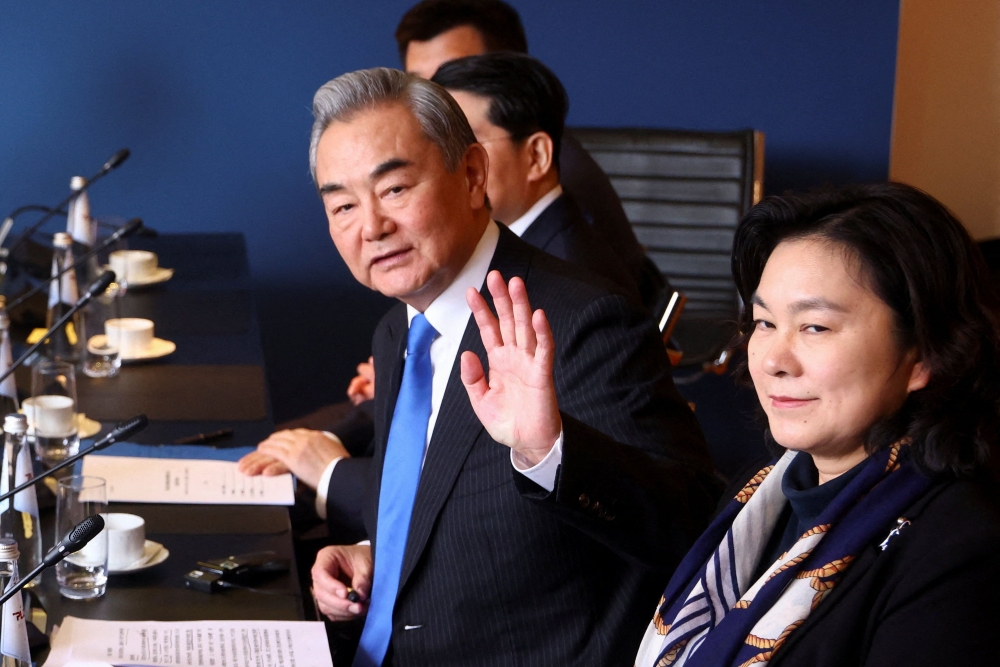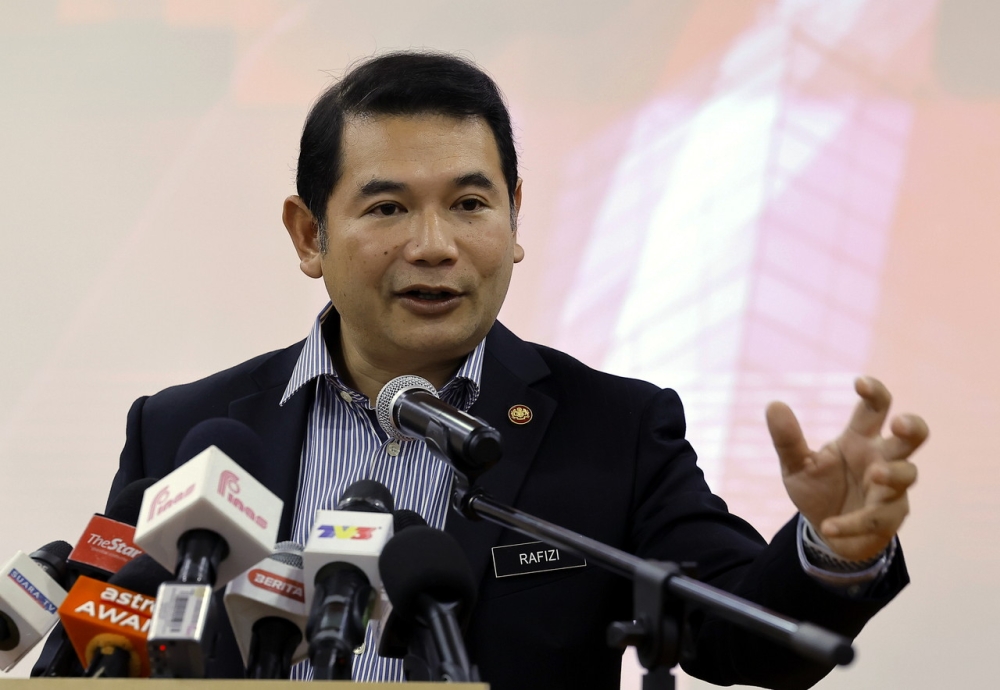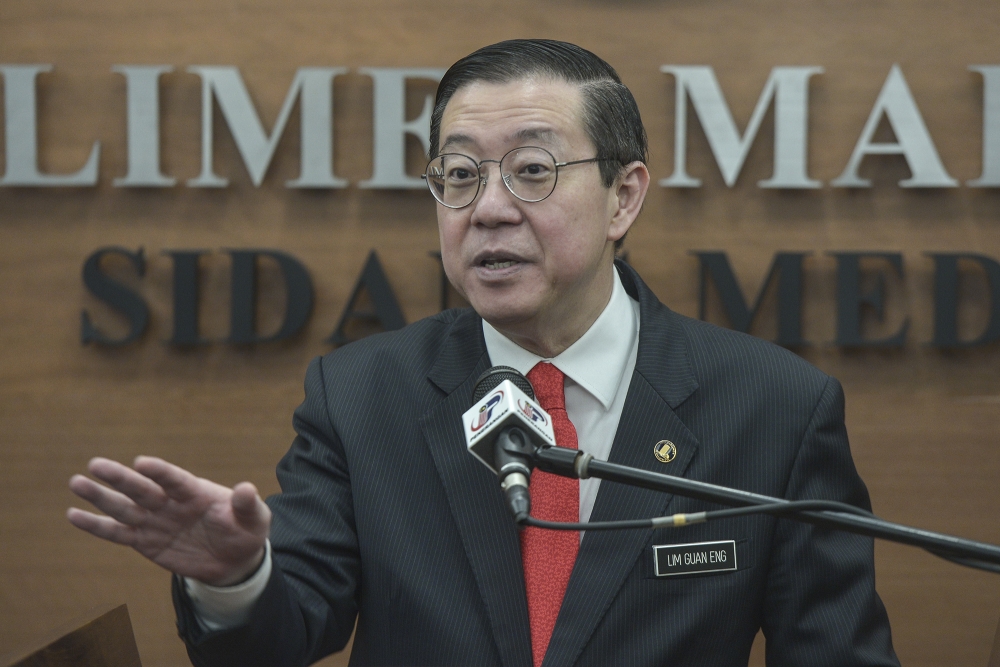KUALA LUMPUR, Jan 25 — Consumers must keep abreast of the cost of raw goods to make educated purchases, while also getting wise to vendors and retailers who continue to price themselves above the inflation rate, Minister of Economic Affairs Rafizi Ramli said today.
He said dining out was the biggest contributor to inflation in Malaysia.
This, he said, has raised the price of goods as consumers weren’t aware of reductions in the price of raw produce.
Rafizi said his ministry and the Department of Statistics Malaysia (DOSM) will release a list of prices for 28 million products that the public can access so they are aware of what’s happening in the market.
“Once there is an awareness of which prices that went up are now coming down, I believe the public will then be more selective with their consumer behaviour.
“Right now, the biggest contributor to inflation is the money that we spend on eating out at restaurants and hotels. The reality is the inflation graph is actually coming down, and at times, is stagnant and all the data shows that inflation is dropping except for food, electricity, restaurant and hotel dining as well as gas.
“We want the public to know that if the price of raw goods is low, then food prices should reflect that and we should not just accept that a cup of Milo panas is still RM2.50,” Rafizi said during a press conference today.
Rafizi said that the current rate of inflation is 3.3 per cent, but 2 per cent for raw goods, meaning that restaurants should also be pricing their items at 2 per cent above the rate of inflation.
However, he said, the ministry found that food inflation is at 7 per cent.
The MP for Pandan explained that the government cannot control the price of all goods and services because it would be too much to handle.
He also said Malaysians are too accepting of the prices that they are charged as they do not realise that for example, the price of milk or sugar had dropped.
“No government can fix the price for everything. Controlling all prices is beyond any government’s capability. If we add more to the price control list, this would mean increased monitoring, which in turn means more enforcers, and therefore, more salaries. Then the public will pay more in terms of taxes.
“Secondly, if we just rely on the Price Control Act, it will cause disruptions to the supply chain. When the government puts price ceilings, vendors feel it’s not profitable and may abandon it altogether as it affects their cash flow, and subsequently, the supply chain.
“Right now, food prices don’t reflect the low inflation rate. Instead, food prices continue to be high. With this list that we want to make easily accessible, I hope the public will use it to compare the prices that they are charged,” he added.
In addition, Rafizi said giving out government subsidies is not the solution to the problem as lots of subsidies are being used for gas, oil, electricity and other staples.
Hence, the public must help the government by reporting any unfair price practices in the market, but also play their part in ensuring those who continue to profit due to the public’s ignorance will cease to do so.
“It isn’t just about giving subsidies. Part of it is to instil fair price awareness among consumers to make them more selective and that’s the way to get retailers to act. When they see no support for their produce or products, they have to react by dropping their prices accordingly,” he said.
“We need to address this gap in what we have to pay and what the input costs are showing. We have a list of 28 million products and produce and this list is updated and current, so we hope this data will help the consumer make good choices.”
Previously, Rafizi received flak for asking consumers to avoid buying unreasonably priced items to curb inflation.
Analysts had responded by saying that bringing down demand to curb rising costs was too simplistic a solution.
He told consumers that they are also partly responsible for the continued rise in food prices in Malaysia, as he called for a “collective” effort to rein in soaring inflation.
According to DOSM, inflation for the overall year 2022 increased 3.3 per cent as compared to 2.5 per cent recorded in 2021.
On a monthly basis, inflation in December 2022 recorded a 0.2 per cent increase as compared to 0.3 per cent in November 2022.
Meanwhile, core inflation that measures changes in the price of all goods and services, excluding volatile prices of items for fresh food as well as administered prices of goods by the government registered an increase of 4.1 per cent in December 2022 (November 2022: 4.2 per cent).
In December 2022, four states that showed increases above the national inflation level of 3.8 per cent were Putrajaya (7.9 per cent), Selangor (4.5 per cent), Sarawak (4.1 per cent) and Johor (3.9 per cent). However, Kedah recorded the lowest increase of 2.2 per cent.
Malaysia recorded a lower inflation rate than some selected countries, namely the Euro Zone (9.2 per cent), Philippines (8.1 per cent), United States (6.5 per cent), Thailand (5.9 per cent), Indonesia (5.5 per cent) and the Republic of Korea (5.0 per cent).



















